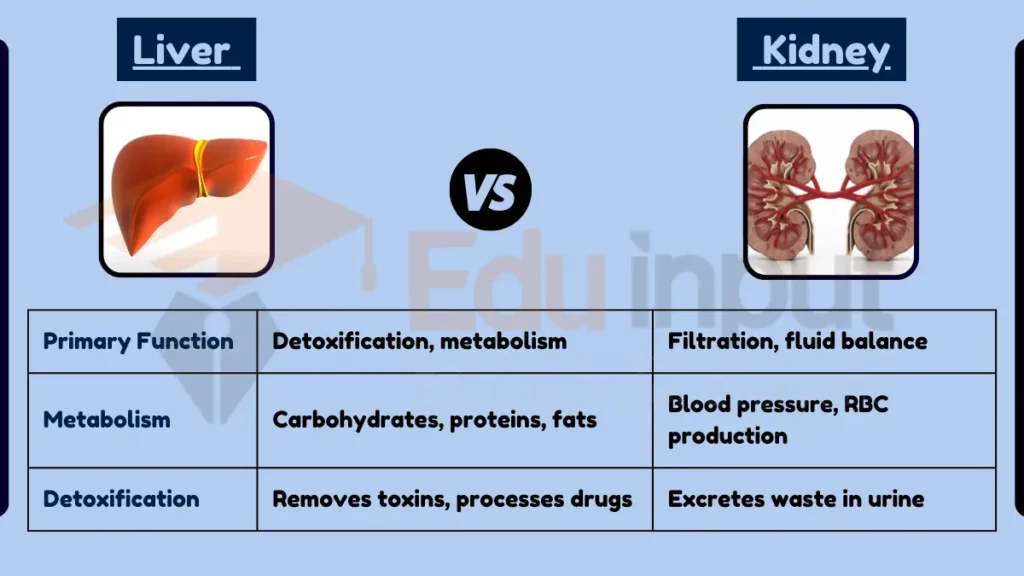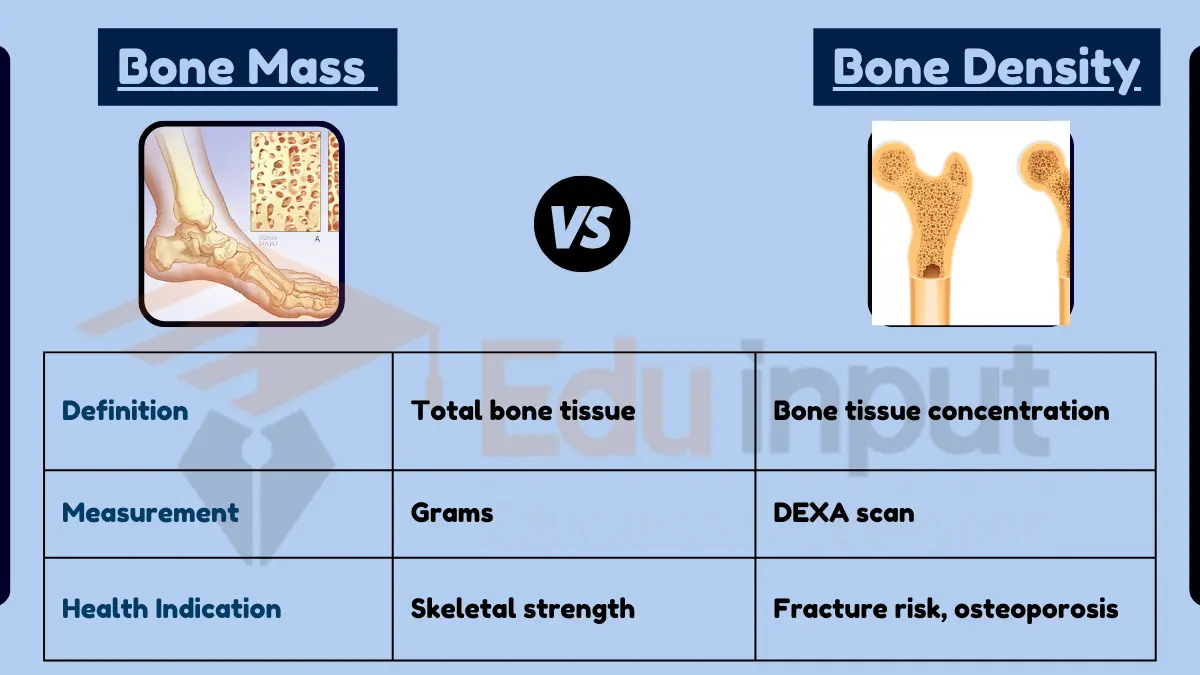Difference Between Liver and Kidney Function
December 24, 2023
Table of Contents
Key Difference
The liver and kidneys are both vital organs in the human body with distinct functions. The liver is primarily responsible for detoxification, metabolism, and protein synthesis. It processes nutrients from food, produces bile, and removes toxins from the blood. The kidneys, on the other hand, are essential for filtering blood, removing waste products and excess substances, and maintaining overall fluid and electrolyte balance.

Comparative Analysis
- Primary Functions:
- Liver: Detoxification, metabolism, bile production.
- Kidneys: Filtration of blood, waste removal, balance of fluids and electrolytes.
- Role in Metabolism:
- Liver: Metabolizes carbohydrates, proteins, and fats; stores vitamins and minerals.
- Kidneys: Help regulate blood pressure, red blood cell production, and calcium metabolism.
- Detoxification Process:
- Liver: Removes toxins and processes drugs.
- Kidneys: Filter and excrete waste products as urine.
- Impact on Homeostasis:
- Liver: Affects digestion and energy availability.
- Kidneys: Regulate blood pH, salt, and potassium levels.
- Disease Manifestation:
- Liver: Diseases can lead to jaundice, liver failure.
- Kidneys: Issues can cause kidney stones, renal failure.
Table Summary
| Feature | Liver | Kidneys |
|---|---|---|
| Primary Function | Detoxification, metabolism | Filtration, fluid balance |
| Metabolism | Carbohydrates, proteins, fats | Blood pressure, RBC production |
| Detoxification | Removes toxins, processes drugs | Excretes waste in urine |
| Homeostasis | Digestion, energy | Blood pH, electrolytes |
| Diseases | Jaundice, liver failure | Kidney stones, renal failure |
Also Read:
File Under:







Leave a Reply